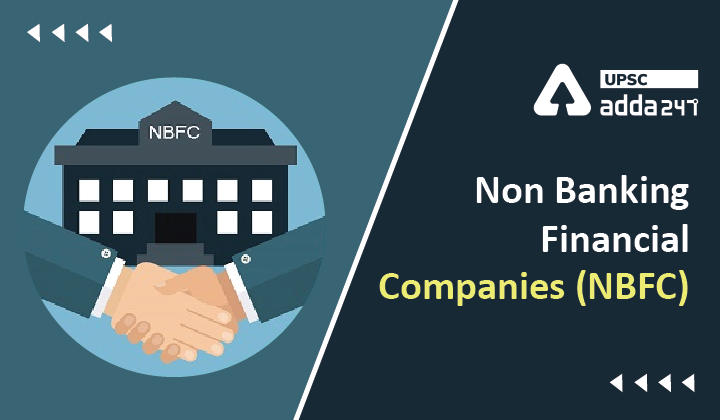Table of Contents
What is NBFC?
- NBFC meaning: NBFC is a company registered under the Companies Act, 1956 that offer various banking services but do not have a banking license.
- NBFCs are not subject to the banking regulations and oversight by state authorities that are adhered to by the traditional banks.
- NBFC examples: Investment banks, mortgage lenders, money market funds, insurance companies, hedge funds, private equity funds, and P2P lenders.
- Since the Great Recession of 2008, NBFCs have proliferated in number and type, and have played a key role in meeting the credit demand unmet by traditional banks.
- Read about RBI brings NBFC under PCA.
Get Free Study Material for UPSC and State PCS Examinations
Difference between banks and NBFCs
| Banks | NBFCs |
| Banks can accept both demand and time deposits. | NBFC cannot accept demand deposits. |
| Banks form part of the payment and settlement system and can issue cheques drawn on itself. | NBFCs do not form part of the payment and settlement system and cannot issue cheques drawn on itself. |
| Deposit insurance facility of Deposit Insurance and Credit Guarantee Corporation is available to depositors of NBFCs. | Deposit insurance facility of Deposit Insurance and Credit Guarantee Corporation is not available to depositors. |
Categorization of NBFC
NBFCs are categorized
- In terms of the type of liabilities into Deposit and Non-Deposit accepting NBFCs,
- Non deposit taking NBFCs by their size into systemically important and other non-deposit holding companies (NBFC-NDSI and NBFC-ND) and
- By the kind of activity, they conduct.
NBFC regulation
- NBFCs are regulated by the regulatory authority, depending upon the area of function
- The Reserve Bank has been given the powers under the RBI Act 1934 to register, lay down policy, issue directions, inspect, regulate, supervise and exercise surveillance over NBFCs that meet the 50-50 criteria of principal business.
- Housing Finance Companies are regulated by National Housing Bank
- Merchant Banker/Venture Capital Fund Company/stock-exchanges/stock brokers/sub-brokers are regulated by Securities and Exchange Board of India, and
- Insurance companies are regulated by Insurance Regulatory and Development Authority.
- Similarly, Chit Fund Companies are regulated by the respective State Governments and Nidhi Companies are regulated by Ministry of Corporate Affairs, Government of India.
NBFC benefits
- Alternate source of funding and credit
- Direct contact with clients, eliminating intermediaries
- High yields for investors
- Liquidity for the finance system
Non-Banking Financial Company – Micro Finance Institution (NBFC-MFI)
- Microfinance institutions or MFIs are financial institutions that provide loans and other financial services to poorer sections of society.
- Usually, their area of operations of extending small loans are rural areas and among low-income people in urban areas.
- The objective of covering them under RBI was to make these NBFC MFIs healthy and accountable.
NBFC MFI conditions
- Minimum Net Owned Funds (NOF) of Rs.5 crore. (For those registered in the North Eastern Region of the country, Rs. 2 crores is required as minimum NOF).
- At least 85% of its Total Net Assets are in the nature of “Qualifying Assets.”
NBFC AND MFI difference
- The only difference between an NBFC MFI and other NBF is that while other NBFCs can operate at a very high level, MFIs cater to only the smaller level of social strata, with the need of smaller amounts as loans.





 TSPSC Group 1 Question Paper 2024, Downl...
TSPSC Group 1 Question Paper 2024, Downl...
 TSPSC Group 1 Answer key 2024 Out, Downl...
TSPSC Group 1 Answer key 2024 Out, Downl...
 UPSC Prelims 2024 Question Paper, Downlo...
UPSC Prelims 2024 Question Paper, Downlo...




